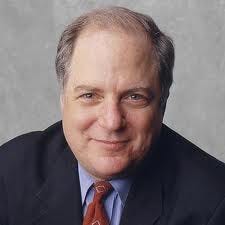“There is a crack, a crack in everything. That’s how the light gets in.” Leonard Cohen
Frank Rich’s recent article, When Privacy Jumped the Shark in New York Magazine, carries the opener:
Note to Edward Snowden and his worrywarts in the press: Spying is only spying when the subject doesn't want to be watched.

Then he goes on to prove the case that Americans have long given up privacy by choice. Eagerly, it would seem, by the explosion of Facebook, Reality TV and countless other handy and even needed devices, such as cell-phones and the internet.
Frank does a worthy job as historian, even-handedly taking us back a half century or so in the complacency and complicity with which we turn from the ‘ho-hum’ of the Edward Snowden revelations to the ‘izzat so’ of Paula Deen. I like Frank and often read his work, but there’s another read on the NSA-Snowden story that seems to have been lost.
Dissent and argument are part of America and have been since our birth as a nation. Tomorrow is the Fourth of July, our national celebration of that very spirit that informed a war against England to freely argue and dissent among ourselves without the restraints of Monarchy. Those Fathers of ours were ‘traitors’ to the law of their times in order to set up what they conceived as better times. In short, we are at our best in this country when we argue like hell and stamp our foot in dissent.
I concede Frank Rich’s point of view in When Privacy Jumped the Shark. Privacy in the form we once knew it is dead and we’ve been given much in return. I won’t go into listing it all, but you can’t have the benefits of data transfer without data interception. My point is that the dark side is not the unlimited knowledge of what we do, but the restraint that unlimited knowledge puts on dissent and argument.
Worrywarts in the press, Frank?
Yeah, count me among them as I ponder the next Edward Snowden, Bradley Manning, Julian Assange, Daniel Ellsberg, Karen Silkwood or Tom Drake realizing the odds against them. Ellsberg was the whistleblower poster-child, exposing the Pentagon Papers that put the lie to our strategy in Vietnam, essentially ending the war and a presidency along with it. He was tried in civil court on the basis of the Espionage Act of 1917 and found innocent, mostly due to a monumental screw-up and overreach by the prosecution.
But those earlier days of equal access to the law are closing in on us, as Bradley Manning is subjected to years in prison before trial (a year of it in solitary confinement) and Julian Assange is clearly fearful of being whisked away to Guantanamo after extradition. Edward Snowden claims to have fled for similar reasons and, in this political climate, those are no longer foolish fears. As a candidate, Barack Obama said,
"Often the best source of information about waste, fraud, and abuse in government is an existing government employee committed to public integrity and willing to speak out. Such acts of courage and patriotism... should be encouraged rather than stifled as they have been during the Bush administration."
Count me among them, as I worry about keyword algorithms that (may) put writers, commentators and ordinary citizen e-mails under scrutiny and raise the cost of our freedom to argue like hell and stamp our foot in dissent. If I were a defense attorney in any of these cases yet to come, I might well open my argument with a video-clip of Mr. Obama making that statement.
